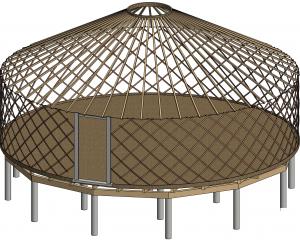A leading Kiwi climber says the death of his friend shows the mountains have no respect for experience.
Christchurch mountaineer Jamie Vinton-Boot (30), one of the country's most gifted alpinists, was killed on the Remarkables on August 12 last year.
A coroner's report, released yesterday, confirmed he was swept off his feet by a small avalanche and fell 500m.
NZ Alpine Team member Ben Dare (30), who raised the alarm after being phoned by Mr Vinton-Boot's climbing partner that day, believes there are lessons to learn.
''[It shows] no matter how much experience you have or how small an incident could be, when you're in the hills there's absolutely no room for complacency and you need to stay on your toes at all times,'' Mr Dare said.
He described the climber's death as a ''tragic loss''.
Mr Vinton-Boot and his climbing partner, Steven Fortune, were making their way to a climb across the Queens Drive route on the southwest face of the mountain range, without using a rope and belay.
At 8.15am, a slab avalanche 4m wide and about 30cm-40cm deep swept Mr Vinton-Boot off the steep slope and down a gully.
He died of multiple traumatic injuries, including a head injury.
Otago coroner David Crerar's report states the pair had set off before a back-country avalanche advisory upgraded the avalanche risk from moderate to considerable.
Senior guide Geoff Wayatt gave evidence to the inquest and, in his opinion, ''they appeared unaware of, or ignored the possibility of, the significant avalanche danger on the morning''.
''They did not fully consider the new snowfall, steep access terrain and avalanche implications when they were traversing the steep slopes of the Queens Drive,'' Mr Crerar quotes Mr Wayatt as saying.
The coroner said that with the benefit of hindsight, it was clear the pair needed to rope up and belay over the avalanche-prone sections of the approach route, despite the fact this could delay the climb to the point that they would return without attempting it.
Mr Dare, who rescued climbing partner Scott Scheele on an ill-fated Himalayan expedition last year, said the NZ Alpine Team would pass on the findings to a group of young climbers it mentored.
''Obviously, avalanche risk is a very real risk and irrespective of the size or location, the consequences of that can be very major,'' he said.
''Jamie got caught in a very small slide. If an avalanche is triggered in that situation, a terrain trap, it funnels down a chute. It's not just the avalanche that will cause problems, it's where it will go. Mr Crerar issued recommendations that alpine climbers should be encouraged to gain an increased awareness of avalanche risk and the consequences, should be encouraged to talk to experienced locals and resort ski controllers about risks and conditions, and should carry beacons, probes and shovels. New Zealand Alpine Club general manager Sam Newton said he would be circulating the finding to members, as directed by the coroner. ''The report serves as a reminder to all climbers that even small pockets of instability can fatally knock you off your feet,'' Mr Newton said. ''An avalanche doesn't have to bury you to kill you.''











